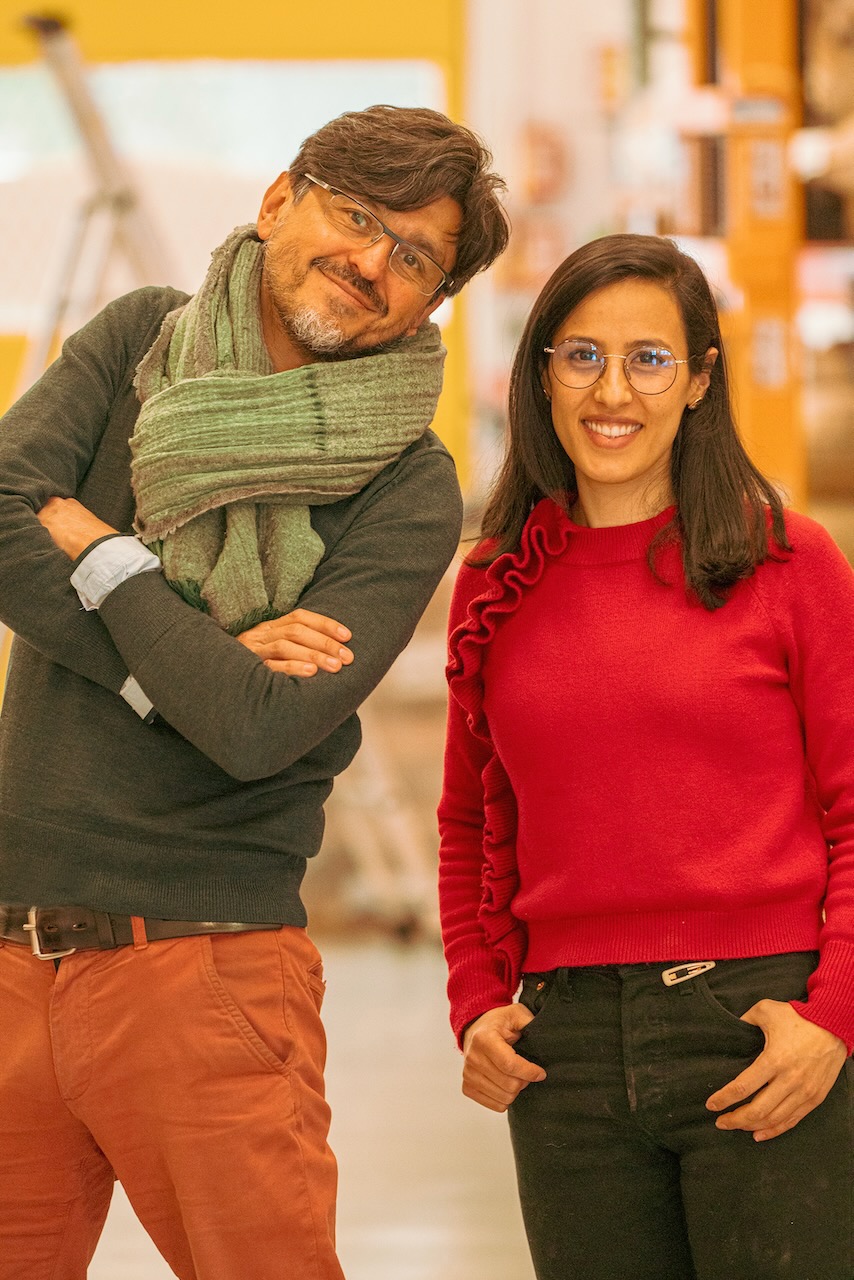
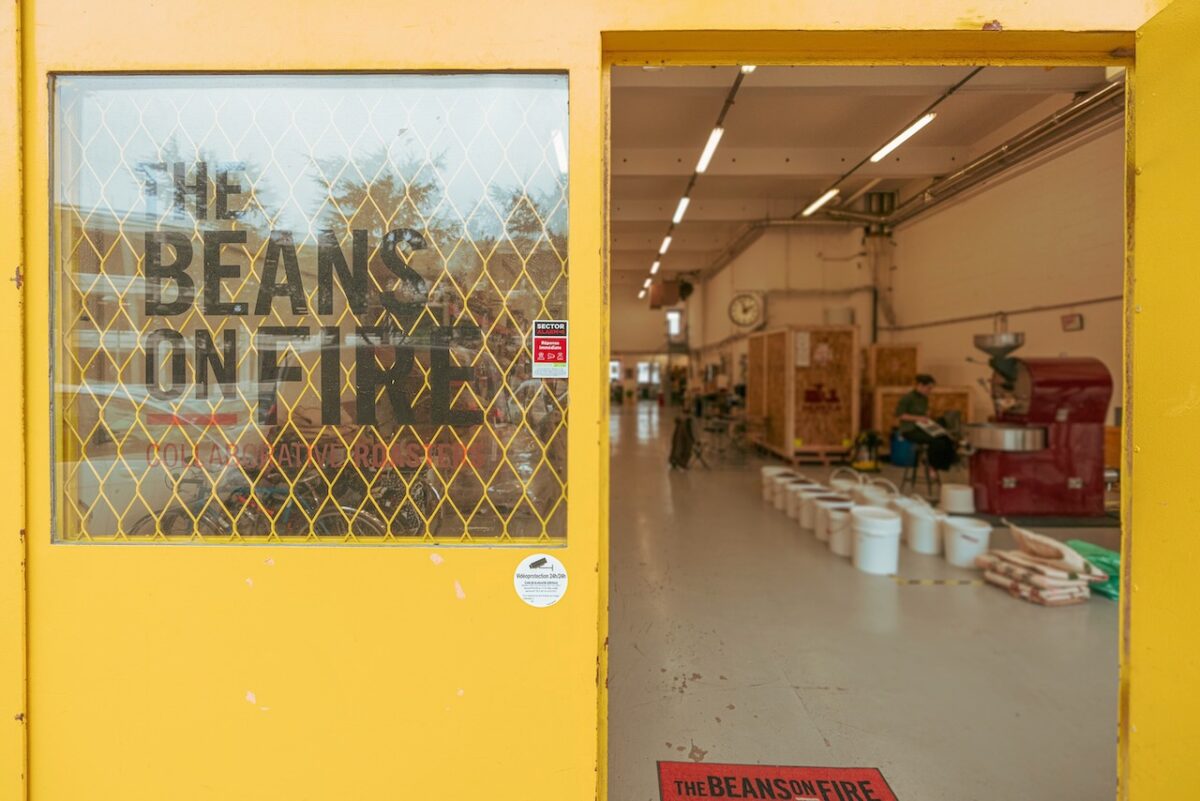
Coffee is played like jazz. Under this concept, The Beans on Fire operates a unique coffee business in Paris, France. Its core project is shared roasting, which they call collaborative roasting. 27 roasters are now using the company’s shared space to roast green coffee.
The Beans on Fire is multi-faceted. It sells its own batches of roasted coffee to businesses and consumers; operates two coffee shops in Paris; and organizes seminars that teach practical roasting skills to those interested in the specialty coffee industry.
Maria Hernandez, originally from Colombia, launched The Beans on Fire together with Andrés Hoyos Gomez. We’ve spoken to Maria to shed light on her outlook on life, which spills into her company’s credo.
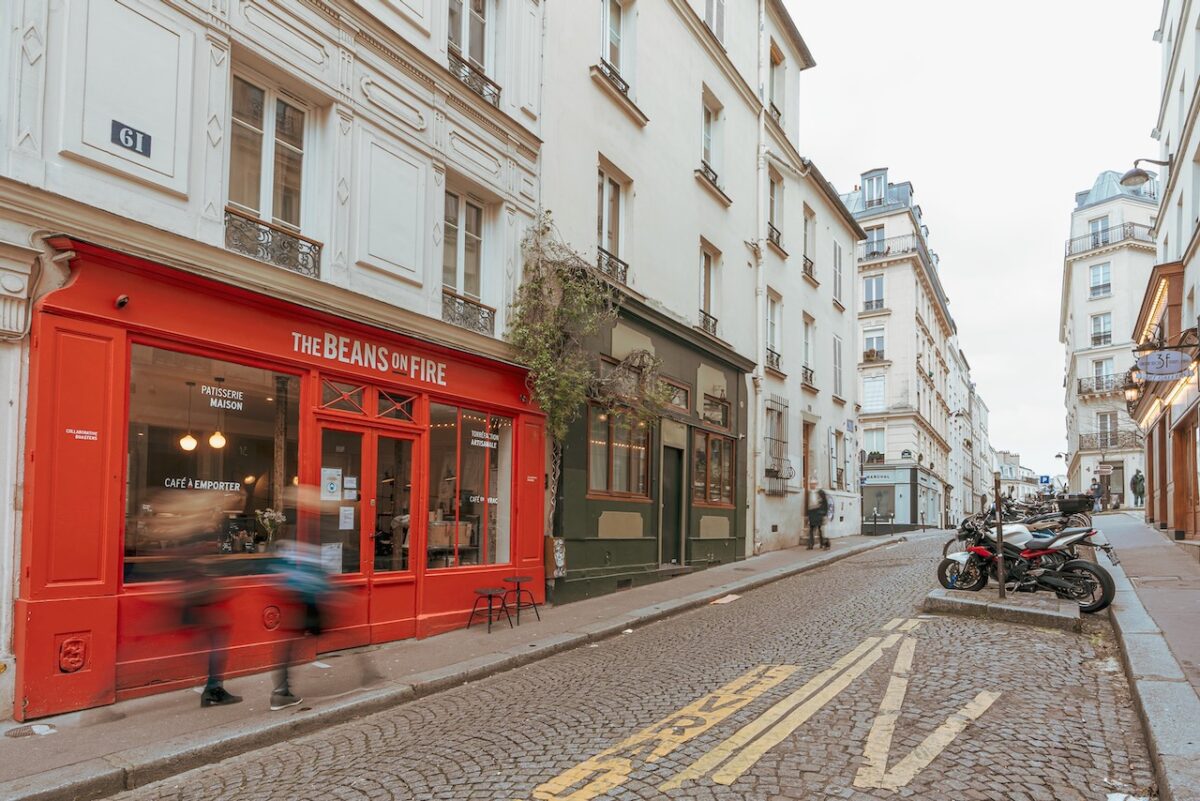
Making delicious coffee accessible
The exterior of The Beans on Fire’s two coffee shops in Paris has distinctive features. The two outlets share the company logo, and upon a closer look, one will notice their doors and walls are in a similar shape. However, the colors of their outer walls are remarkably different. One is painted in greenish, chic black, and the other radiates bright red. The seemingly random choice actually reflects the clear intentions of Maria and Andres.
“The red represents the energy of fire, which is our essential element. The black and white symbolize the direct and transparent journey from the beans to the cup, simple to recognize and appreciate as in ‘black and white.’ And these two colors, black and white, can be integrated clearly with any other color. Although we use these three as our corporate colors, nothing else is decided. If we open a third shop, we are not sure what color it will be. Andres says that not being associated with any color exemplifies our company. It is part of our uniqueness, to be able to be any color.”
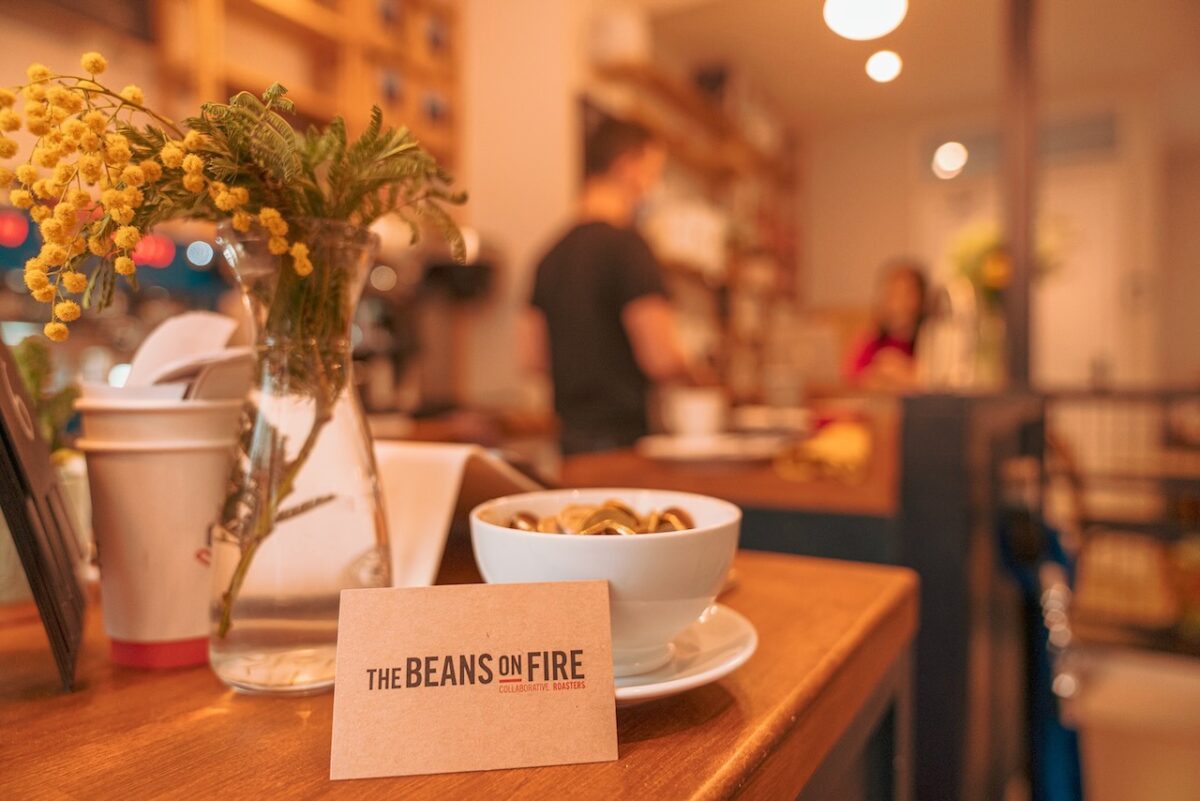
They didn’t happen upon these colors haphazardly. Behind these decisions, there is the philosophy brewing within The Beans on Fire.
“We focus on creating an open space. For instance, we keep our doors open even in the winter to encourage spontaneous interactions between customers. We are also careful about creating a natural line of flow, in a way that makes them feel at home and lets them choose whichever empty seat they want to sit down on.”
Before Covid, we had a large table inside the shops. If someone is sitting in front of you, at least you say hi, don’t you? Of course, you don’t have to get on with further conversation if you don’t want to. But the mere exchange of greetings can change the atmosphere of the space.”
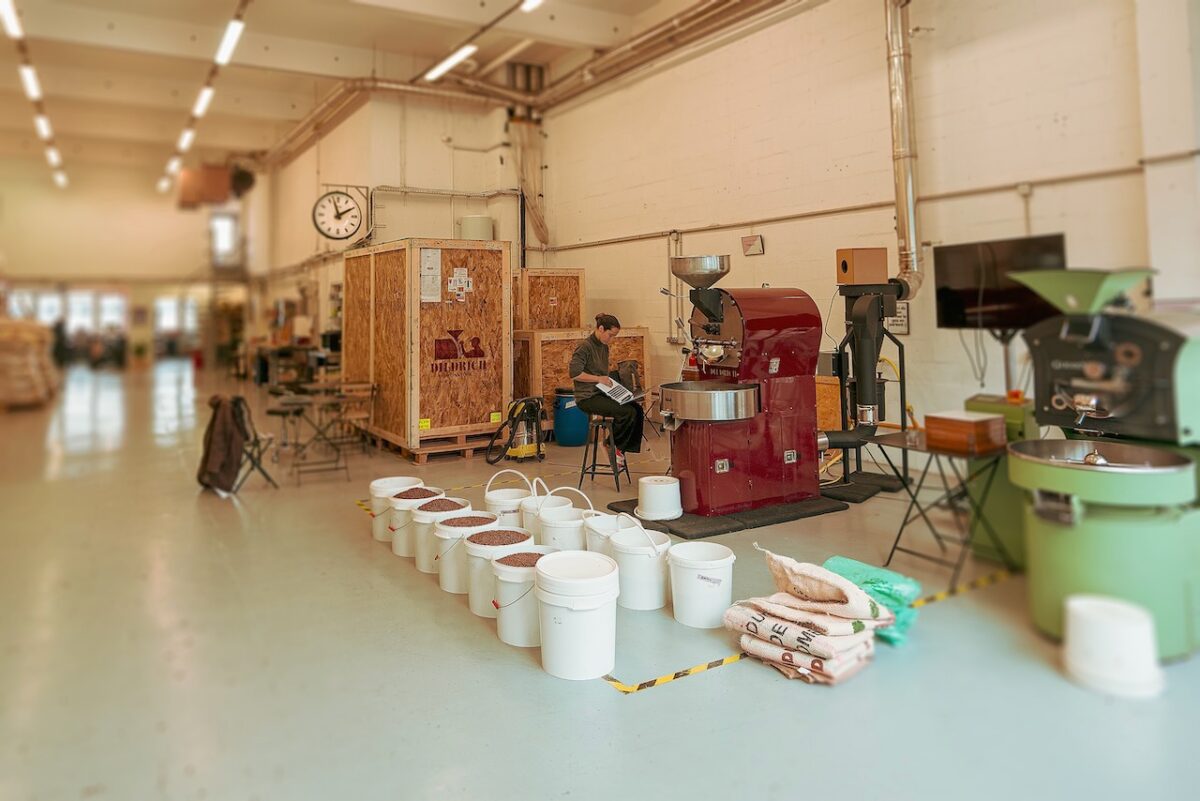
The Beans on Fire’s shared roasting space is also based on this value. The space has tables where users communicate with each other, in addition to closed rooms for those who want to concentrate on work in the privacy of their own space.
“We like to work at various places ourselves, such as the stores of roasters who use our space and our clients. To spark creativity, I find it important to work with other people frequently.”
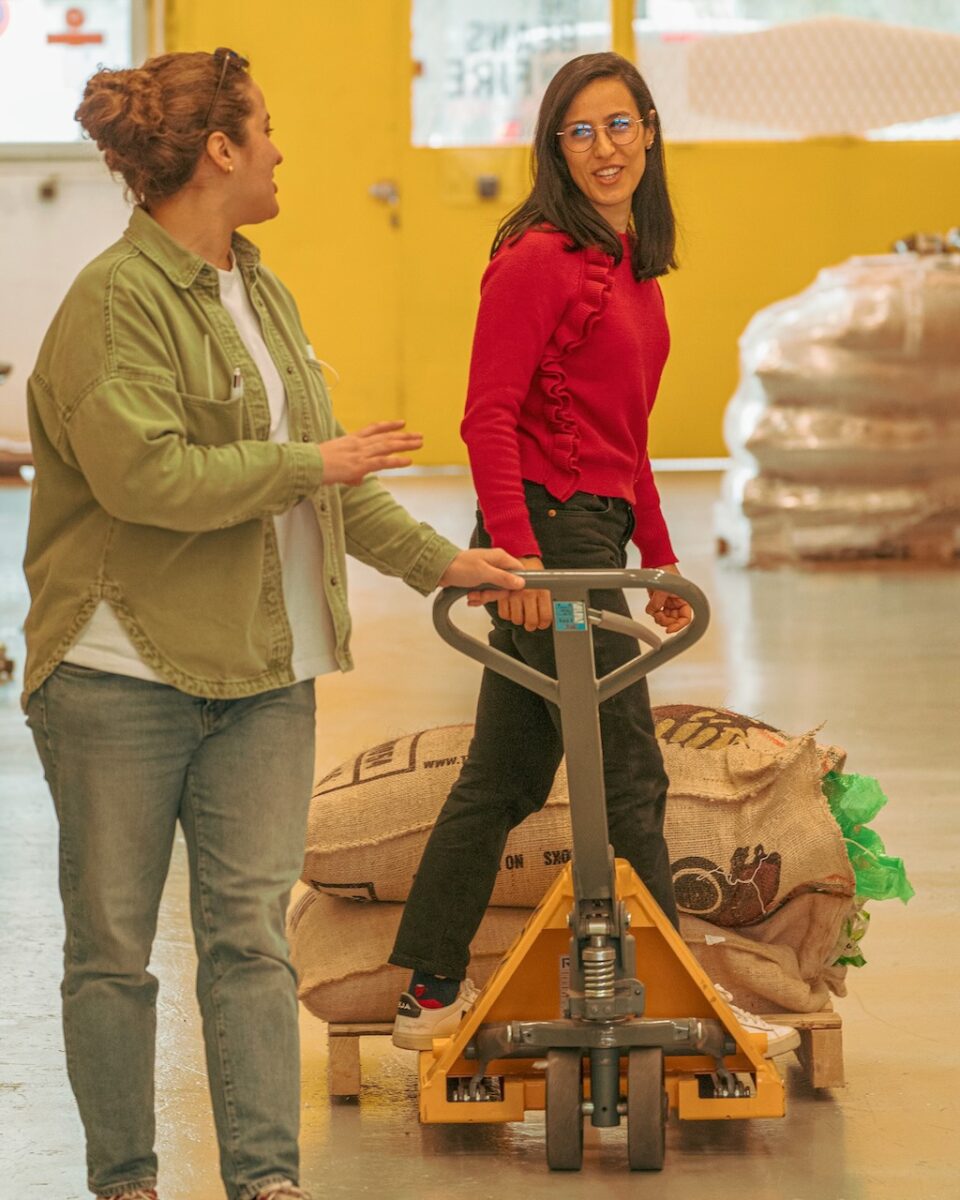
27 roasters currently use The Beans on Fire’s shared roasting space. Aside from a few that already run multiple shops, many of them are budding roasters who look to set up their own business in the future, or ones who prefer to go without their own spaces and invest in other areas such as marketing. For a majority of users, the shared facility allows them to nurture their projects over two to three years before they go independent, with a roaster of their own, once their projects grow promising. For them, the biggest advantage of the space is the reduced business risk because they can keep upfront investment to a minimum.
“The traditional coffee market is huge. A small, one-person company can only make so much impact on the industry by itself. The more people work in specialty coffee, the more awareness specialty coffee will gain, and the more specialty coffee will be consumed.
If such a movement spreads farther and farther, it democratizes specialty coffee. In other words, we’ll see a world where delicious coffee is accessible to anyone. Helping aspiring specialty coffee roasters is the fastest route to realizing that future.”

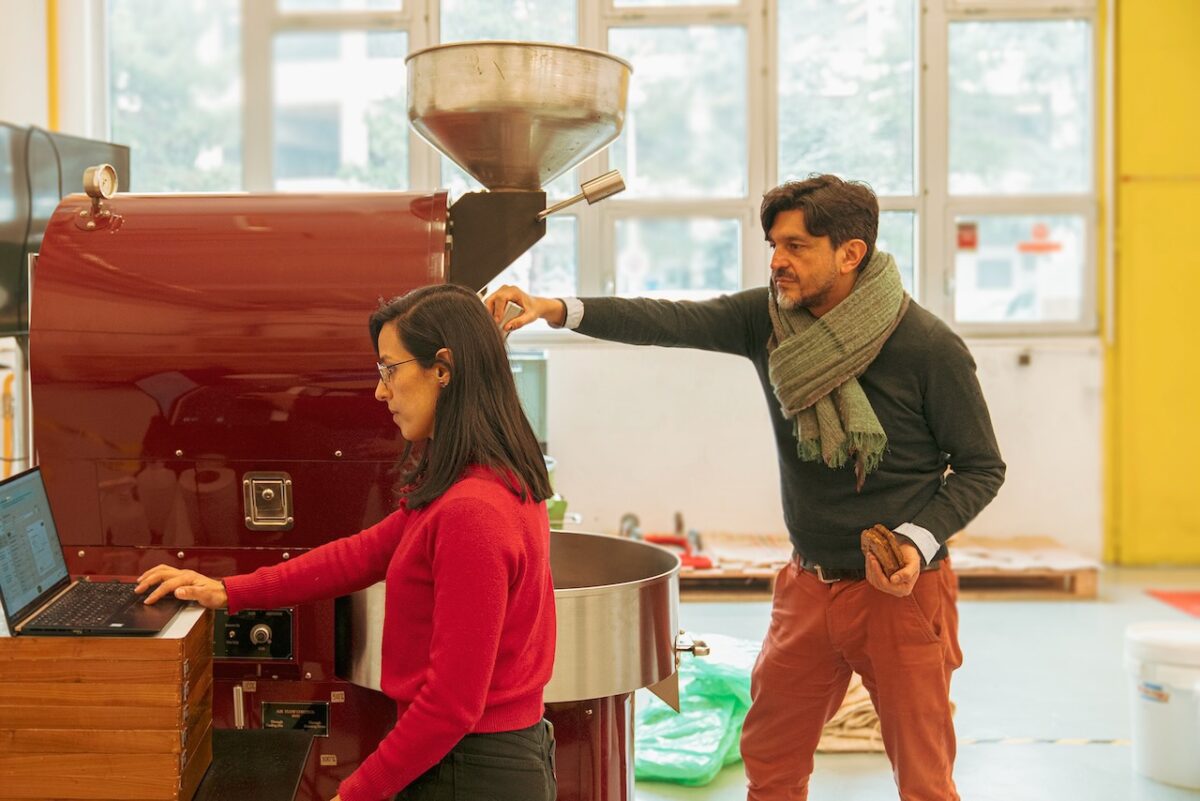
Important lessons, learned from jazz
Maria and Andres took inspiration for The Beans on Fire’s business model from jazz.
They used to discuss their business plans at the home of Andres’s partner, who is a famous jazz musician. The two were inspired by her improvisational performance with other musicians.
“Jazz musicians always try to create something new, instead of playing a fixed melody. All of them are highly skilled, and they listen to each other’s performance while putting together their own sound. This approach in jazz has something in common with coffee. There is the producer who grows green coffee, then the exporter, and also the roaster and the barista. Each one of them has to listen to each other’s work and fulfill their part to make a delicious cup of coffee.
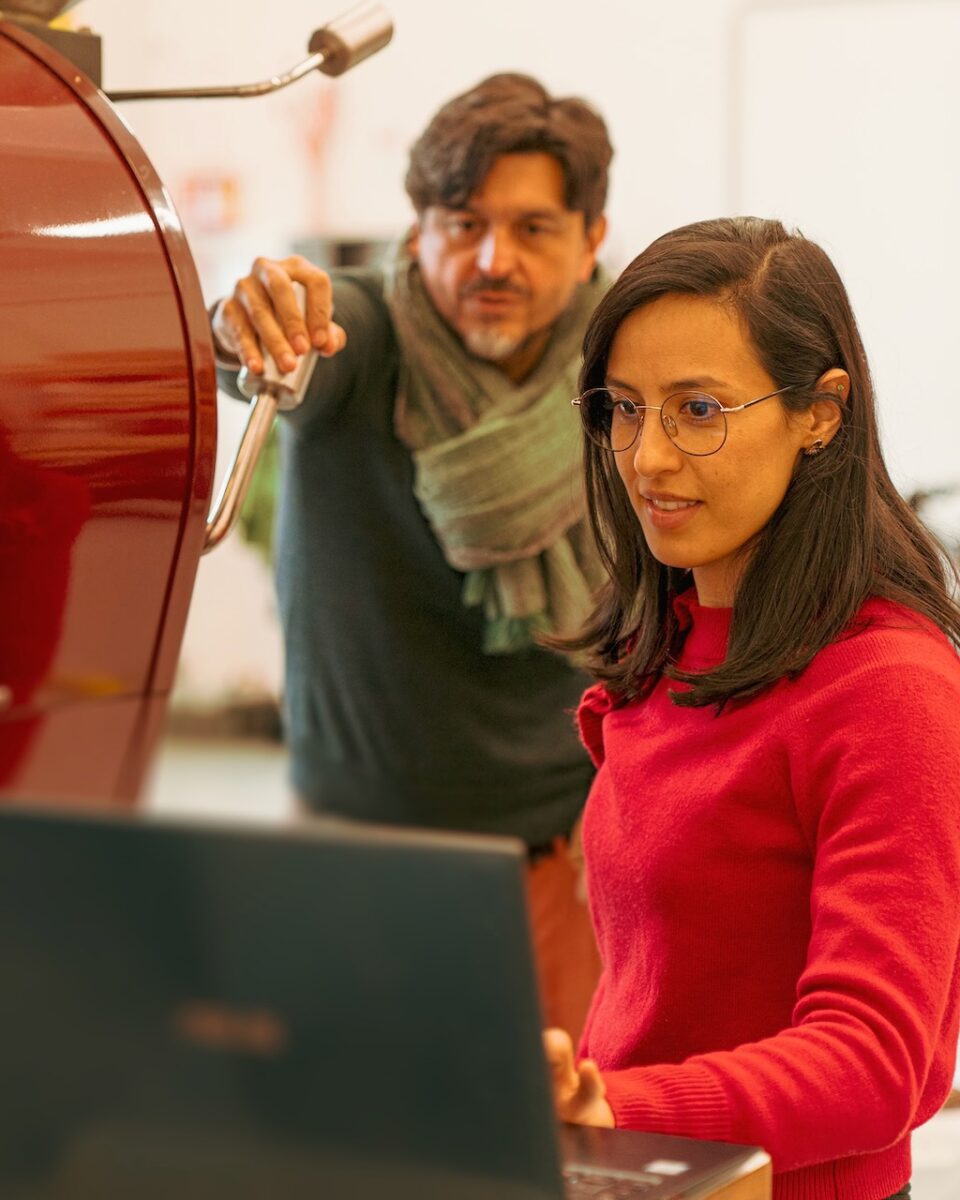
The Beans on Fire is like a music studio. At our shared roasting space, users can roast coffee whenever they want to. They also have a chance to get to know various coffees grown in different origins and roasted in different methods. We are a place where people learn from each other and grow together.
Personally, I keep on trying new things and experimenting to explore new possibilities, trying not to stay in a tiny world and become fixated on one idea. This attitude is something I learned from jazz musicians, who use mistakes as fodder to create great music. This approach in jazz lies at the heart of my life.
With that said, all this is not possible unless you know the basics. Only when you learn theories and basic knowledge can you tinker with them to produce something new, whether you are a jazz musician, a student or a roaster.
For me, five to six years of working at a bank gave me this basis. The greatest asset I earned from that experience is the ways to be productive, discipline myself and manage a team. While I encourage my four-year-old daughter to explore the world outside our home herself, I also tell her to follow certain rules.”

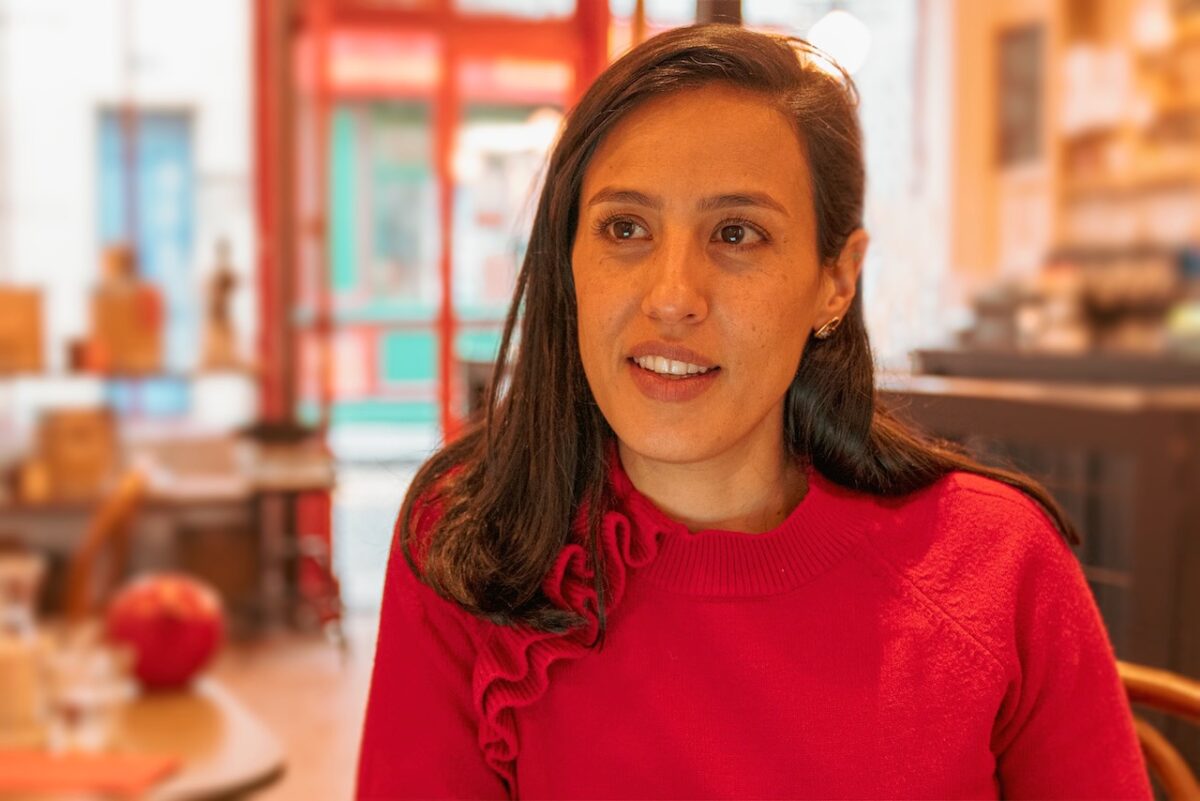
Deep longing
For Maria, who was born and raised in Colombia, coffee was always close to her heart, because her father was the founder of a coffee production business.
As is often the case with many other parents, Maria’s father wanted his children to take over his farm. But she had a childhood dream to go to France and study French. She did understand her father’s wish, but living a life without taking a stab at her dream was by no means an option.
Her father told Maria that she could go wherever she wanted to once she finished her studies. On the day of the graduation ceremony of her graduate school, Maria wasted no time and bought a flight ticket to France. That was in 2007, when she was 23 years old.
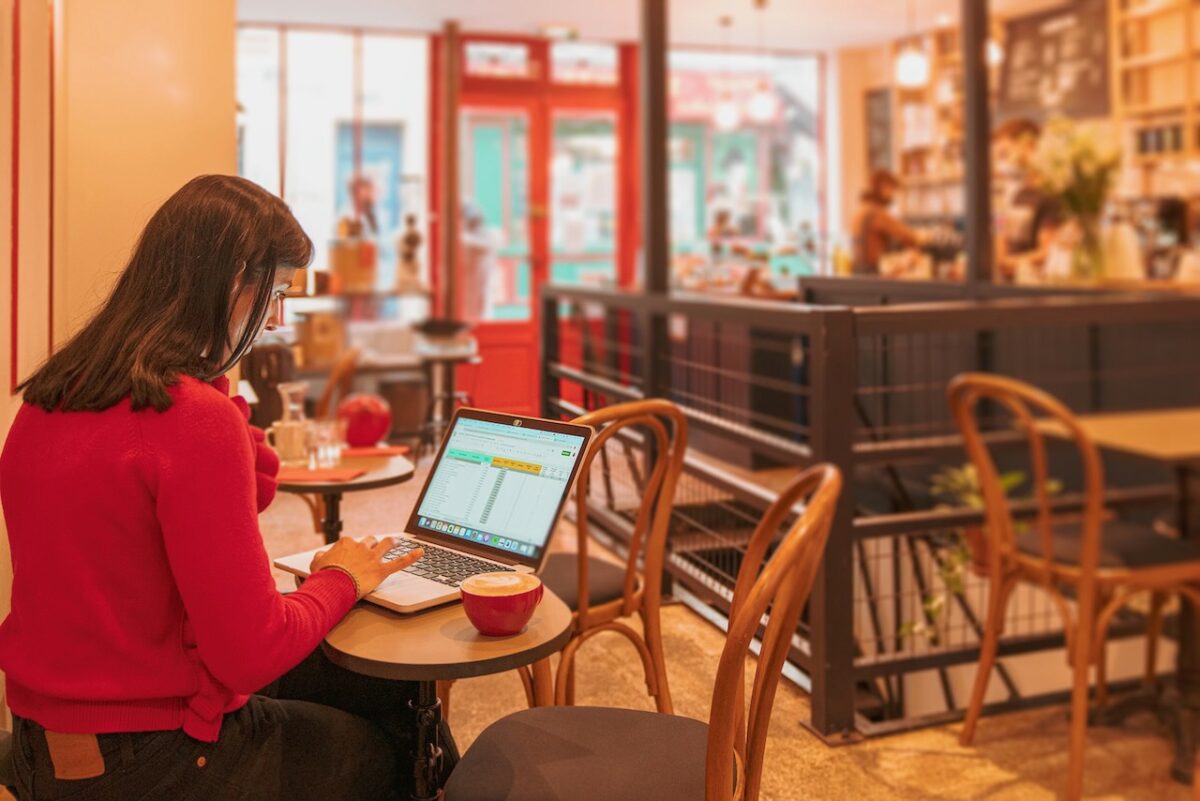
After working at the Colombian embassy in Paris for six months, she earned a master’s degree in international business. She went on to take up a position at a bank, out of a desire to work a more creative, fast-paced job. She was 26 years old when she was asked by her father to take over his farm. But having always blazed her own trail, Maria responded with strong will.
“Dad, this is your farm,” Maria said. “I don’t want to do it. I want to build my own life.”
“Okay,” her father replied. “It’s your decision.”
Maria saw a hint of disappointment flit across his face. But her determination was unwavering.
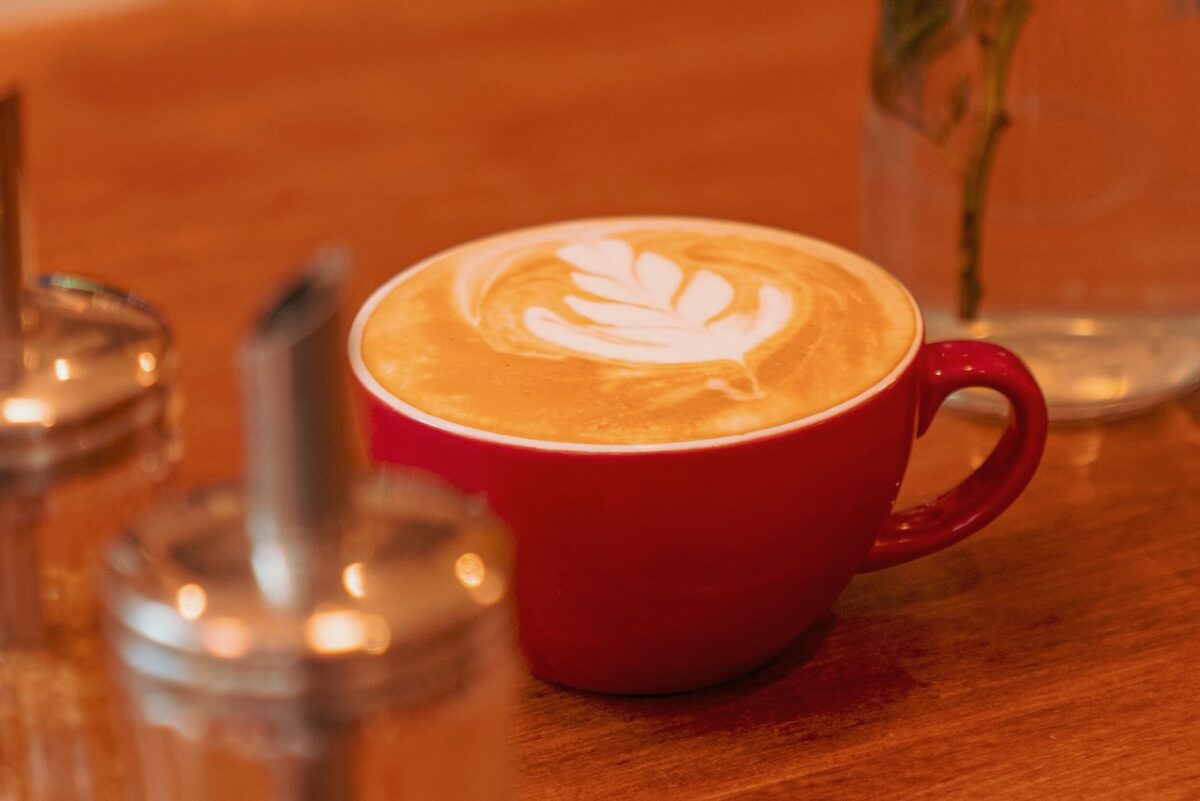
Over time, though, she began to grow frustrated with her work as she spent hours and hours staring at a computer at the bank, for days on end.
Soon, a sense of wistfulness crept into her heart – with memories of home, of running around coffee trees, of turning down her father’s wish.
Maria didn’t regret her decision to leave her country and move to France. But as soon as her father knew that neither of his three children had the intention of carrying on his business, he sold his farm. Maria has made peace with his decision. But deep down, a vague sense of gloom remained.
Deep longing for her hometown and her father eventually pushed her to think about how she could stay connected with Colombia while living in France. There was only one answer.
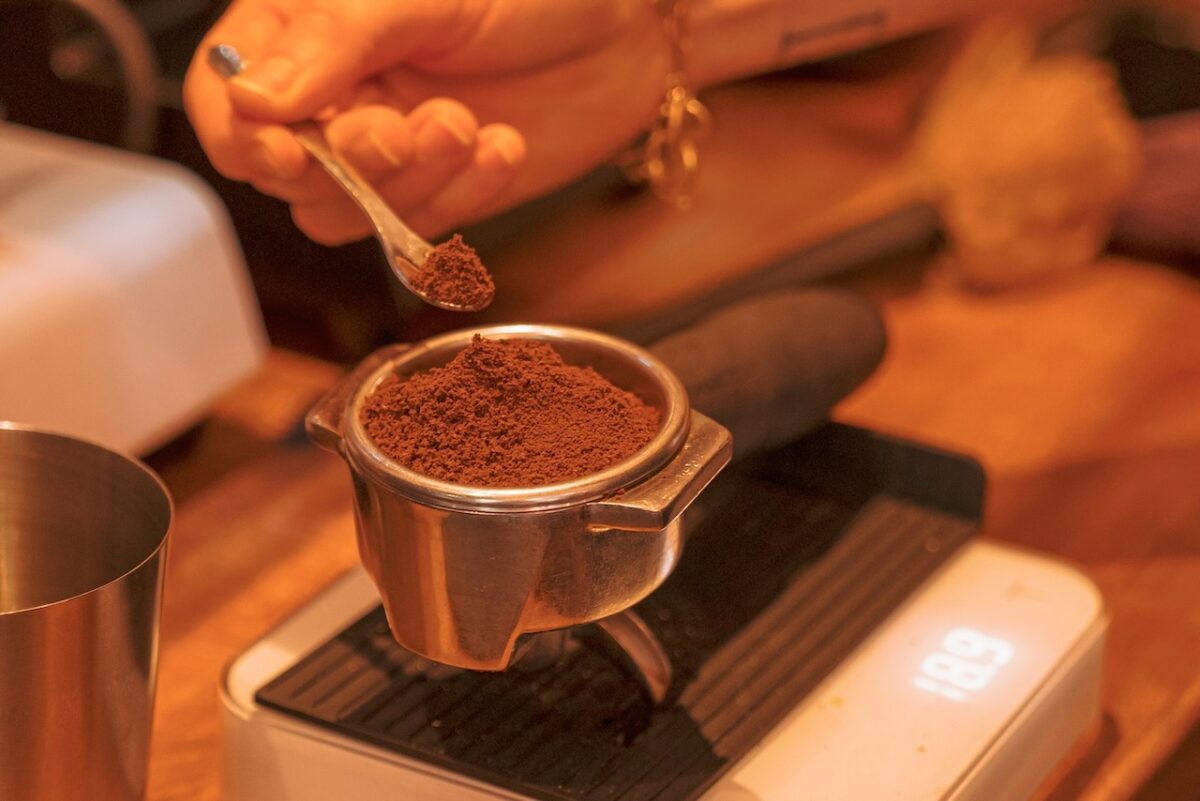
After five to six years of working at the bank, Maria left the job, and joined Paris’s first specialty coffee shop “La Caféothèque”, thus making her foray into the world of coffee.
“I had the passion and energy to do something original and forge deep ties with coffee producers in Colombia. But I didn’t have a concrete roadmap as to what to do or how to do it.”

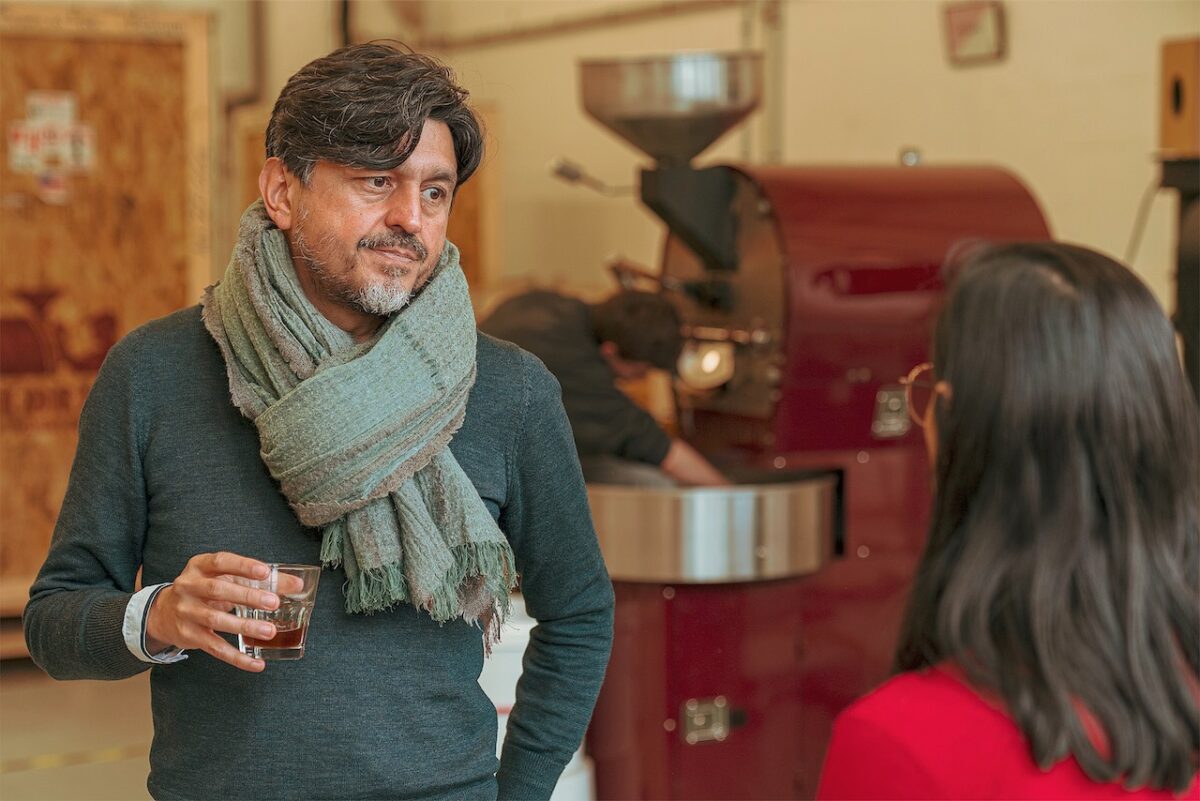
Not just our project
What awaited Maria was an encounter with Andres. After an over 20-year career as a strategic consultant at McKinsey & Company, Andres was just having a midlife crisis, taking a renewed look at how he wanted to live. When Maria met Andres, he was in the middle of a trip around coffee origins, taking a break from his consulting job and hatching a business plan.
“Nearly everyone I met at La Caféothèque said they wanted to open a specialty coffee roastery and directly trade specialty coffee,” Maria recounts. “Their dreams were similar.”
“But Andres was different. He told me, ‘We should listen to others’ opinions before building a business because it’s not just our project.’ I was moved by his way of thinking.”
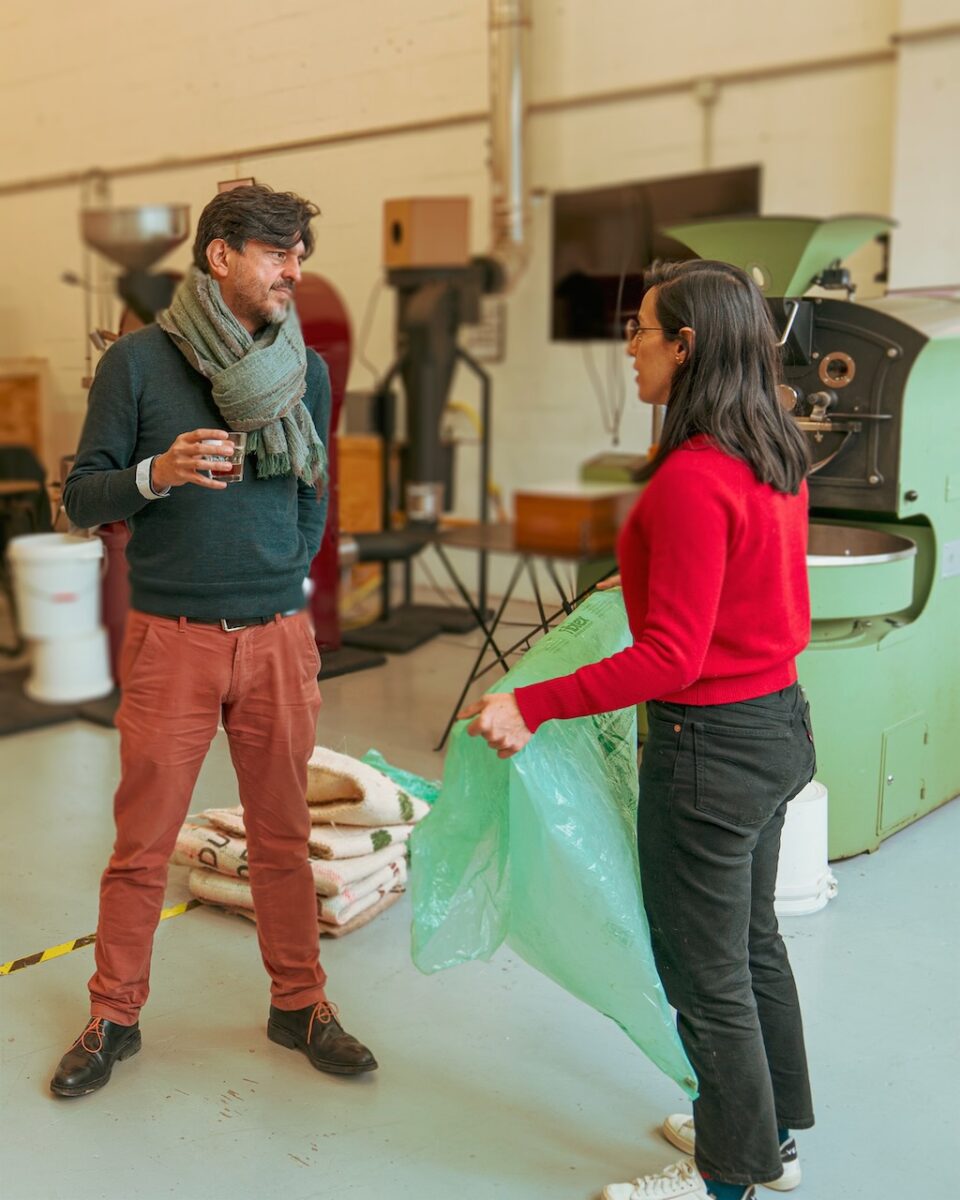
After studying coffee at La Caféothèque, Andres set off on a two-month tour of roasters, shared roasting spaces and coffee shops, with the aim of figuring out what was missing from the special coffee industry – or in other words, the needs of the coffee market.
“That tour revealed that quite a few people wanted a shared place where they could roast together. Today’s coffee industry doesn’t have enough places where people can share knowledge and experiment to grow together. Driven by the determination to create such a place ourselves, The Beans on Fire was set in motion.”
Though the concept of shared roasting was new, Maria and Andres were convinced of an eventual success of their business. But contrary to their expectations, its growth was slow to come, with the number of users stuck at three in the first year and five in the second. However, the sluggish business gained a boost when the Covid-19 pandemic struck the world.
“The pandemic prompted an increasing number of people to quit their work and take up roasting, the job that makes more sense and requires them to use not just their head but also their hands. Now, I receive an inquiry about our space almost every day.”

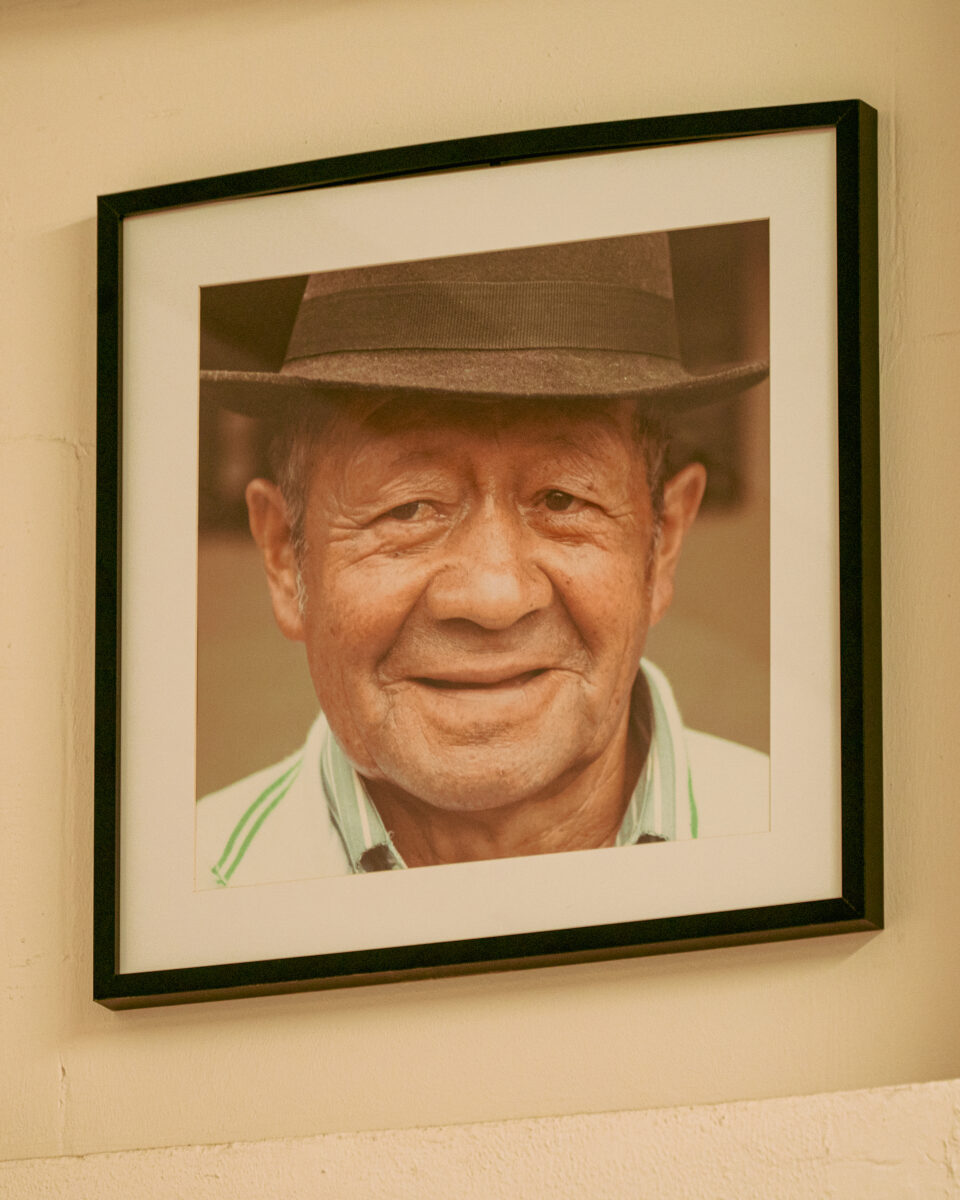
Arnulfo Botina, the first Colombian partner producer for The Beans on Fire
Spirit lives on
For Maria, who is in charge of the entire business operation at The Beans on Fire, her biggest mission is to develop her native Colombia through the sourcing of green coffee. The company does direct trading only with producers in Colombia. Since its foundation, The Beans on Fire has purchased coffee from the same farmers at a fixed price every year, with the view to maintaining long-term relationships with them.
“We focus on only three regions because we want to make a big impact on those communities by concentrating our resources. At the bottom of our business, there is my yearning to have deep connections with my country, Colombia.”
One of the regions is the southern department of Narino, where a majority of producers are poor and small-scale. Here, coffee farms dot a vast expanse of terrain around a 1,800 meter volcano. With favorable climate and soil conditions, Narino has long produced great coffees. But as the security situation significantly deteriorated in the last 20 years or so, the region has lost the traffic of buyers from abroad.
“For many years, local farmers have had to sell their coffee for a cheap price despite its good quality because they had difficulty finding a market for themselves. We are now working with 24 families in Narino and buying their crops for a price they deserve.”
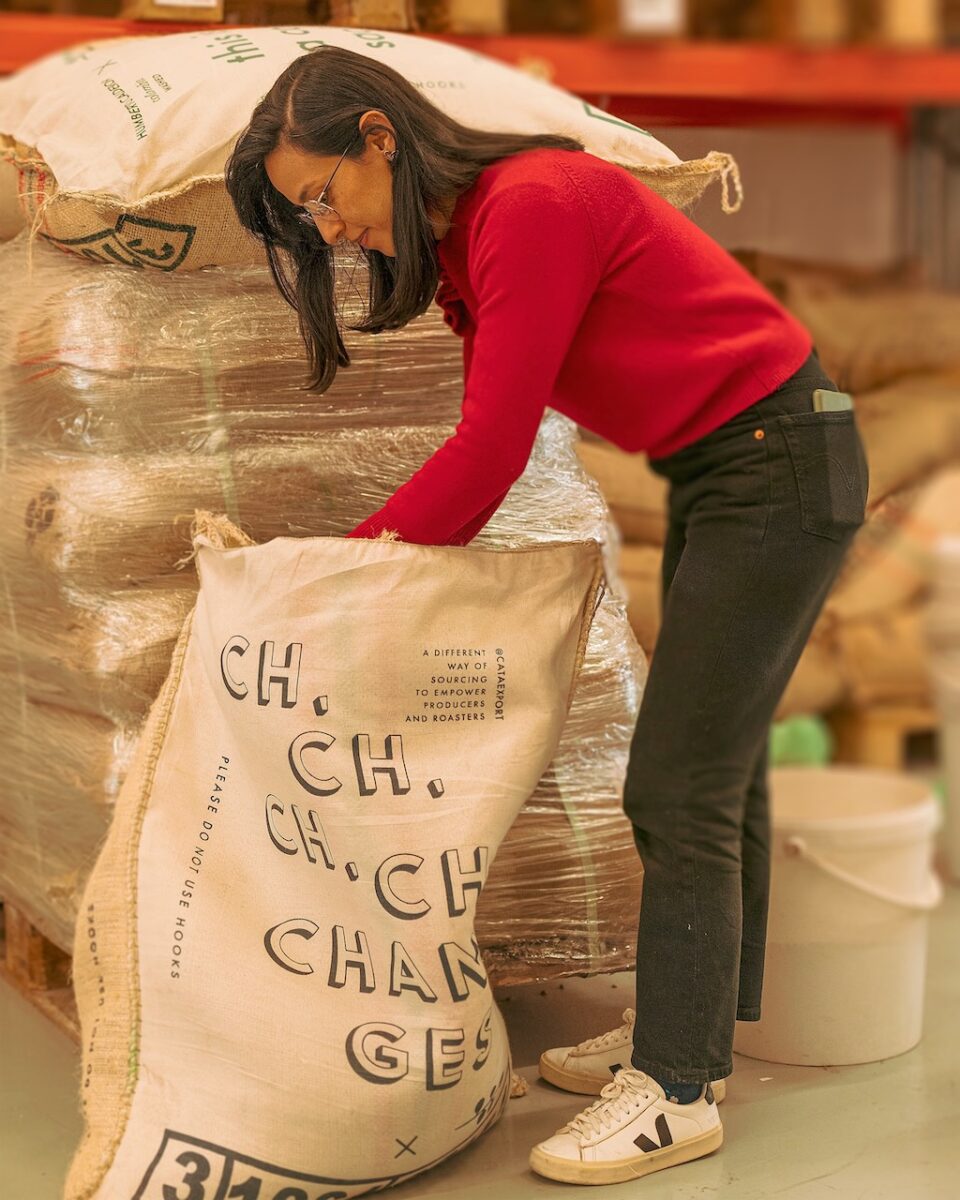
The Beans on Fire’s efforts to develop communities do not stop at the continuous purchase of coffee. One other initiative is investment in education for the children in the community.
Many of the youth in Narino leave the region and seek a life in bigger cities, resulting in a high average age of coffee producers and a shortage of their successors. To resolve these issues, Maria visits Narino with engineers every year and provides a one-week course on robotics.
“We teach robotics as a way to aid human-performed tasks, helping people complete them in an easier, more reliable way. For instance, people can use robots to record simple data like humidity, density and rainfall, instead of taking notes themselves.
Robots can help people manage and improve coffee quality. Through this course, we want more young people to know they can make a living out of coffee and to take over production.
Though we are only involved with a few families, we see value in the fact that our efforts are making a difference in their lives. Together with locals, we have carried out a project to improve the living environment of each household. Thanks to this initiative, more people in Narino now have access to basic infrastructure like toilets and water service.”
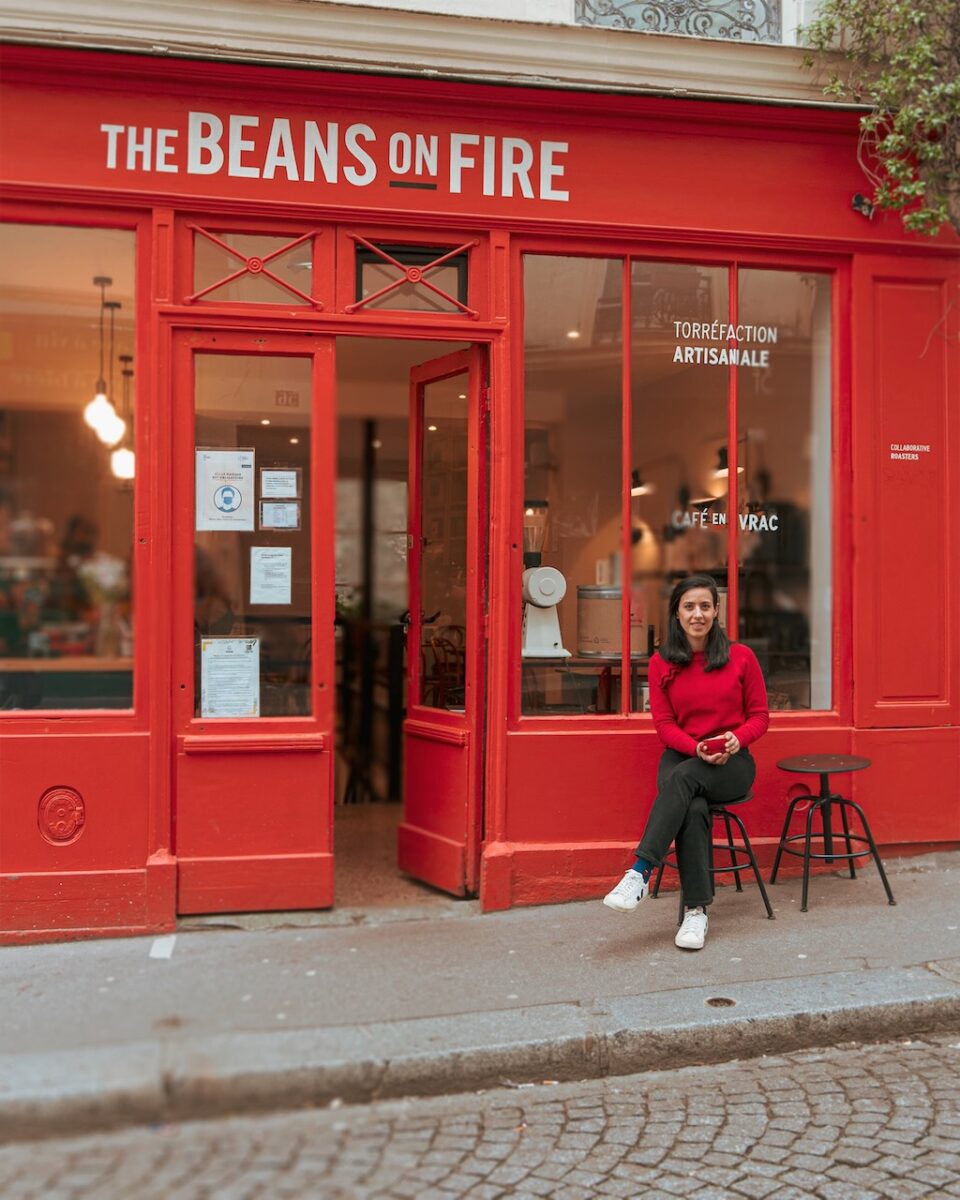
About 15 years have passed since Maria left Colombia. Her father is no longer involved in the coffee industry after selling his farm. But he is proud to see all his children carve out a career for themselves, Maria says.
“The three of us didn’t want to let our father down. So we couldn’t make a decision right away. But ultimately, our resolve to design our own paths was strong. Now, the three of us and our father all believe that we made the best decision.
My father probably didn’t welcome my decision with great joy at first. Nevertheless, he didn’t show a trace of disappointment so that we wouldn’t feel guilty.
Perhaps, my father knew that I was sincere with him, and understood I was firmly determined to build my own path. I learned from him that what parents want for their children doesn’t always mean happiness for their children. What matters the most is for the children themselves to live a happy life. I want to treat my own daughter with the same attitude I learned from my father.”
It’s not hard to imagine how overjoyed Maria’s father must have felt when he knew his daughter started a job that’s connected with coffee and Colombia. Just as there are myriad forms of parent-child relationships, there is no single right answer to roasting or business. The spirit that Maria inherited from her father – respecting people’s opinion and encouraging them when they set off on a new path – will surely permeate the hearts of those who gather at The Beans on Fire.
Originally written in Japanese by Tatsuya Nakamichi
Photos by Anael Rouiller
MY FAVORITE COFFEE
I like the coffee I drink with my father in the morning, when I return home to Colombia. My father relies on my mother for everything else around the house. But when it comes to coffee, he wakes up early and brews it for me, with a truly happy face. The quality of coffee itself may not necessarily be exceptionally good. But drinking it with my father as we watch the sunrise, it becomes the best coffee for me.

The Beans on Fire
Gardette
- [Open]
- Mon~Fri 8:00 - 18:00 Sat, Sun 9:00 - 18:00
The Beans on Fire
Trois Frères
- [Open]
- Mon~Fri 8:00 - 18:00 Sat, Sun 9:00 - 18:00








